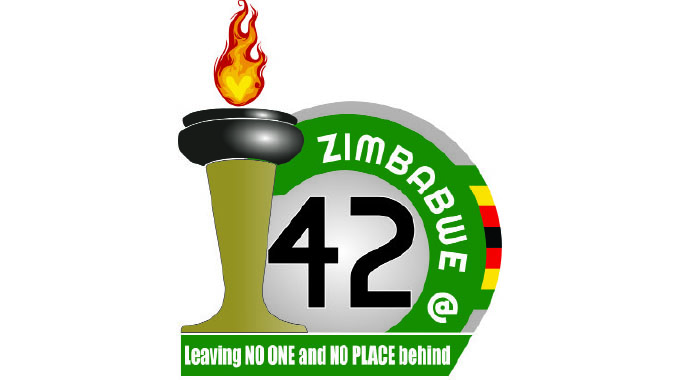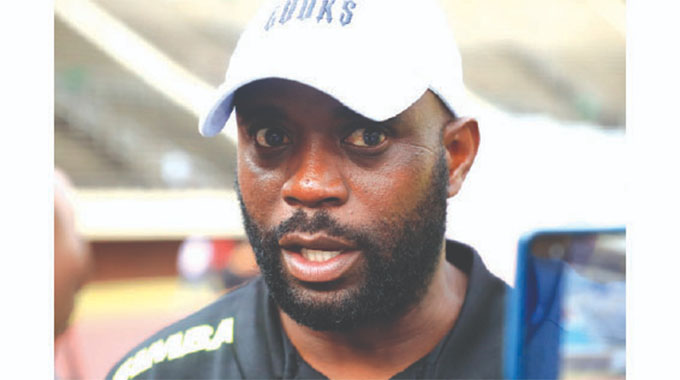Ex-CAPS star Sibanda laments state of football

Ellina Mhlanga-Senior Sports Reporter
FORMER CAPS United and national team player Charles “Raw Meat’’ Sibanda believes there are a number of aspects that have led to the changing of the football landscape in Zimbabwe.
As the country celebrate 42 years of Independence, Sibanda went down memory lane as he looked at some of the developments that have taken place over the years.
Football is one of the leading sport codes in Zimbabwe in terms of popularity and number of followers.
Over the years it has had its ups and downs.
Speaking to The Herald yesterday, Sibanda, who played alongside legends like Sunday Chidzambwa, Joseph Zulu, Wonder Phiri, Bruce Grobbelaar, David Muchineripi, David Mandigora, Shacky Tauro and Oliver Kateya in the senior national team during the early days of our Independence, highlighted that a number of components, including investment, administration, facilities and junior policies, have had an impact on the beautiful game.
Sibanda played top-flight football both in the pre-Independence and post-Independence period and was part of the Zimbabwe national team that played the first ever World Cup qualifiers in 1981 against Cameroon.
He pointed out the role played by companies and mines during his playing days, and the impact it had in shaping the quality of the game in this country.
“Of course, everyone can see, even a blind person can see, that football in Zimbabwe has deteriorated.
“And the causes of deterioration; I think one aspect is there were so many facilities during the early days of Independence.
“We used to have youth clubs and so forth and there were so many companies and mines involved with football, and with those companies and mines, there were amateurs and non-amateur players.
“When I say amateurs and non-amateurs, I mean those players could go to work and then after working hours, they would go for football training. There were non-amateurs; football players were working and at the same time playing football.
“So when we look at the side of semi-amateurs, semi-professionals, you would find that we were financially healthier than what it is at the present because you could earn money at your work place and then earn money again when you are playing football.
“And fortunate enough, where you would play football that’s where you would work again. A good example, I was playing for CAPS United and I was working for CAPS Holdings.
“And then we had mines like Rio Tinto, Mhangura, ZISCO and Hwange, just to name but a few, and all those had sports facilities and they were also employing football players. So that was the template during the early days in Zimbabwe.
“You could see that football was okay. We had good players who came from those facilities and who were workers,” said Sibanda.
The CAPS United legend said things changed when clubs turned professional.

“All of a sudden things changed, clubs turned professional, especially the public sector teams like soldiers and police just to name a few. They became professional, they could engage players who would train full-time and then earn money every month.
“And so all the independent clubs like Highlanders and Dynamos followed suit. They became professionals yet they didn’t have sound financial backing to pay the players or to venture into the professional football, which is where we are at the moment. And the players began to suffer, things were deteriorating, the welfare etc,” said Sibanda.
During his playing days, Sibanda said clubs used to have junior policies which was key in producing quality players and ensuring continuity, something which is no longer visible in the current set-up.
“The company teams had reserve sides and junior policies. If I can go back to CAPS United where I was playing, or at Dynamos, all the players like Edward Katsvere etc, came from the juniors. With CAPS United, so many players like the late Tobias Sibanda, the Oscar Motsis and the Silver Chigwenjes, all came from the juniors.
“But if we look at what it is today, CAPS United doesn’t have a sound junior policy. Most of the clubs, which are now in the Premiership, don’t have juniors.
“So you find that there is a very big discord whereby football has gone down in our eyes, yet we know the problem and the antidote. We know the template; we didn’t change it but we changed how we are now operating.
“And the other point again is the administration of the game. People go into football thinking that you can just make money without working for it, not knowing that you need to plan, organise yourself and then control the game as it is a business in other countries.
“But now they come and try shortcuts by targeting some good players with the intention of selling them abroad, and that is that. They don’t care about proper development; they don’t care about the supporters.
“Supporters, yes, they enjoy when they hear that one of the players from their teams has gone out of the country, overseas. But what they need are trophies they want to win, which is not happening now.
“There are so many things. When I talk of administration, that’s the worst thing now. There is no training for the administrators and there is no one who is hands-on, who has got the passion for the game.
“We used to have people with passion for the game, even the players themselves. It was love of the game first and then money next.”
Sibanda said because of the structures in the early 1980s, they used to have a ‘’rainbow league’’ that included all races.
“We had so many whites and coloureds, it was a rainbow league.
“It was okay because in football there is no colour, especially here in Zimbabwe when we were playing. We played with so many whites and they learned from us and we learned from them.
“And there was a friendly atmosphere whereby by just rubbing shoulders and camping together, travelling together, we ended up just like friends, and there wasn’t any division or whatever.
“So I think if things are done properly we can get back or overtake what was happening in the yesteryears,” Sibanda said.










Comments